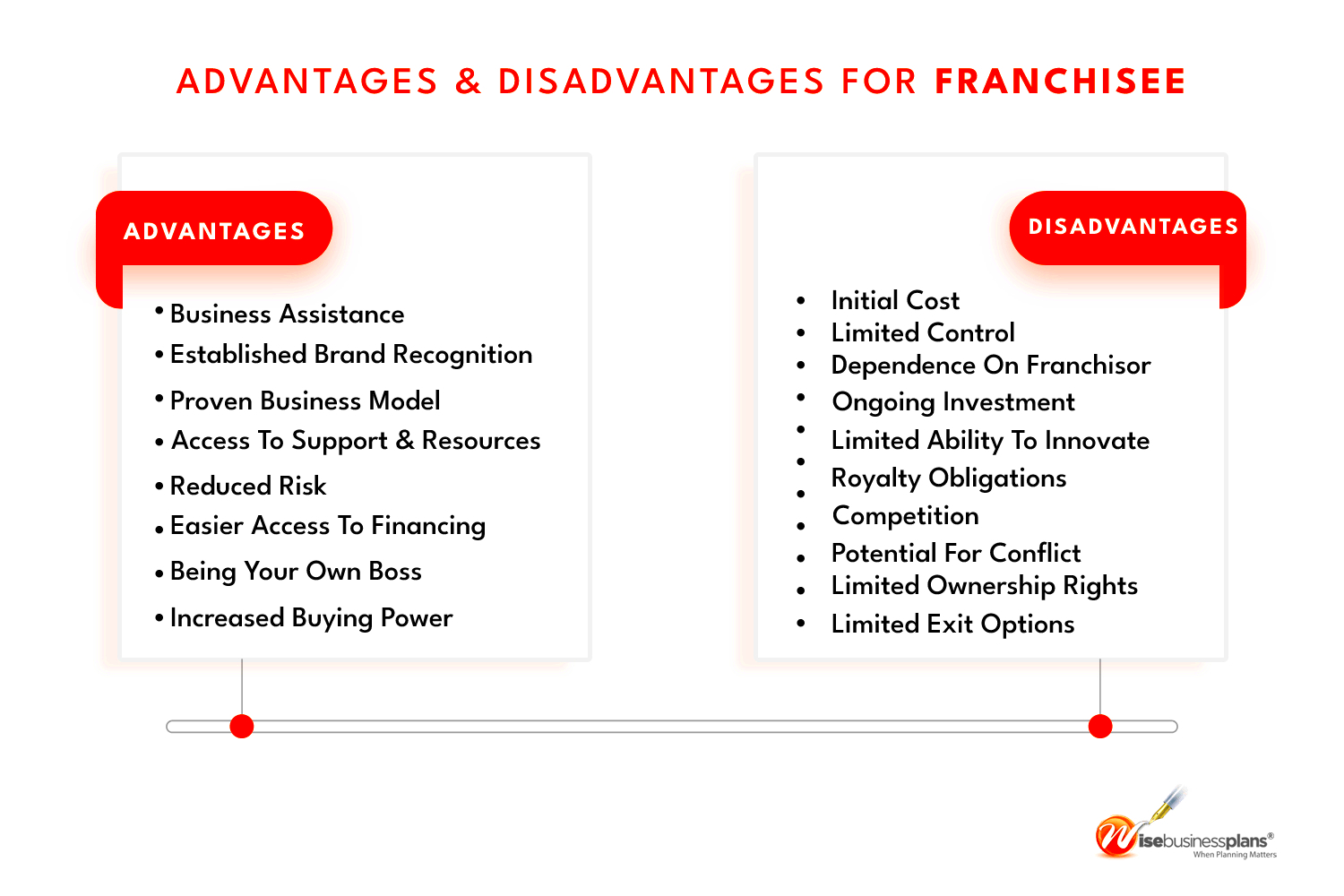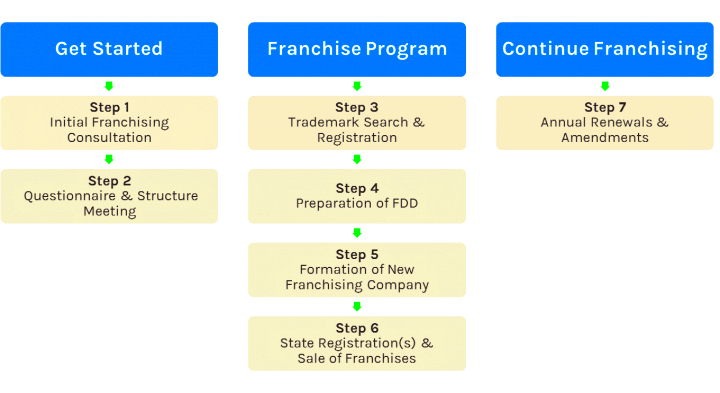Key Points of Ohio’s Franchise Laws for Business Owners
The franchise statutes of Ohio serve a crucial part in structuring the relationship amongst franchisors and franchise owners. If you are a local businessman contemplating franchising or an individual intending to be a franchise purchaser, it is imperative that you comprehend the legal structure that exists. Thus, Ohio’s franchise sector laws safeguard this open, honest and enforceable judicial tie between the two sides. Therefore this article intends to make available some important aspects about these laws so as to help businessmen know their obligations and entitlements.
Franchise Registration and Disclosure Requirements

No franchise registration law specific to Ohio exists but this does not mean compliance can be neglected. Any franchisor is required under federal laws which mainly revolve around the Franchise Rule of the Federal Trade Commission (FTC). According to this rule a franchisor has a duty of providing prospective franchisees with a Franchise Disclosure Document (FDD). This is an important document since it contains pertinent information about the franchise including its history, finance, legality and other agreements.
Important aspects of the disclosure process include:
- FDD Timing: Franchisors must provide the FDD at least 14 days before any binding agreement is signed or any money is exchanged.
- Information Contained in the FDD: It includes 23 different sections, such as franchise fees, royalties, initial investment, and more.
- Penalties for Non-Compliance: Failing to disclose or providing misleading information can result in severe legal consequences, including fines or even cancellation of franchise agreements.
Nevertheless, there is no need for an additional state registration in Ohio; however, when operating in this state any franchisor needs to follow federal guidelines on disclosure.
Important Obligations for Franchisors

In order for franchise relationships to stay healthy and legal in Ohio, franchisors need to know certain obligations they are required to fulfill. These responsibilities are more than just providing an FDD; they involve management by franchisors as well as treatment of franchisees during the entire duration of the relationship.
Key obligations for franchisors include:
- Training and Support: Franchisors are generally required to offer initial training and ongoing support to their franchisees to ensure the smooth operation of the franchise.
- Brand Management: Maintaining the integrity of the brand is essential. This includes monitoring franchisees to ensure they adhere to brand standards and guidelines.
- Marketing Support: Many franchisors must also handle national marketing efforts, which benefit all franchisees. Some even manage local marketing campaigns for individual franchises.
- Contractual Obligations: Franchisors must adhere to all terms in the franchise agreement, including providing updates on any operational changes, fee adjustments, or business strategy shifts.
The purpose of these obligations is to create an equitable and balanced connection between franchisors and franchisees, which promotes simultaneous triumphs while evading future judicial complications.
Rights and Protections for Franchisees

A range of rights and protection mechanisms is available to all franchisees in Ohio so as to give them maximum return on their investment along fairness. They are designed to guard against the potential exploitation of franchisees by franchisors in certain matters such as disclosure, payment as well as conditions of the contracts. The franchisees can thus make enlightenment choices guided by understanding such rights while knowing where they are not being treated well.
Some key rights and protections for franchisees include:
- Right to Full Disclosure: Franchisees have the right to receive all necessary information through the Franchise Disclosure Document (FDD), which ensures transparency about the franchise’s operations, fees, and financial obligations.
- Protection from Unfair Termination: Ohio law protects franchisees from arbitrary or unfair termination of their franchise agreements. A franchisor must have “good cause” for termination, which typically includes failure to meet performance standards or other breaches of the agreement.
- Fee Transparency: Franchisees have the right to clear and upfront information regarding fees, including initial franchise fees, royalties, and any ongoing costs associated with operating the franchise.
- Support from Franchisors: Franchisees are entitled to adequate training, marketing assistance, and operational support from the franchisor as outlined in the franchise agreement.
By familiarizing themselves with these rights, franchisees may safeguard themselves against cheating and proceed confidently along the path of their franchises.
Termination and Renewal of Franchise Agreements

Termination as well as renewal of franchise agreements are very important moments in the franchise relationship. Most of the times, they become a point of contention between franchisors and franchisees, hence requiring an analysis of relevant legal provisions. It is worth noting that fairness is guaranteed during these transitions by both federal and state laws in Ohio.
Key considerations in termination and renewal include:
- Termination for Cause: A franchisor cannot simply terminate a franchise agreement without valid reasons, or “cause.” Valid reasons might include failure to meet performance benchmarks, violation of the franchise agreement, or operational issues that harm the brand.
- Renewal Options: Franchise agreements often come with a set term (e.g., 5 or 10 years), after which the franchisee may have the option to renew the agreement. Renewal terms must be clearly stated in the initial agreement, and franchisors cannot deny renewal without cause.
- Notice Requirements: Franchisors are generally required to give sufficient notice (usually 30 to 90 days) before terminating or choosing not to renew a franchise agreement, giving franchisees time to prepare or address any issues.
- Franchisee’s Right to Cure: In some cases, franchisees have the right to “cure” or fix problems that might lead to termination, such as improving performance or correcting breaches of the contract.
Franchisors should be aware of such rights and avoid conflicts and uncertainties.
Ohio’s Franchise Relationship Law Explained
Ohio loves its franchise connection rules that are suitable for balance of power between franchisors and franchisees in the state. Besides complying with federal expectations, these laws addresses some issues that are not part of the latter; therefore they offer more protection to franchisees operating here.
Main points of Ohio’s franchise relationship law include:
- Good Faith and Fair Dealing: Ohio law emphasizes that both franchisors and franchisees must operate in good faith and deal fairly with each other throughout the relationship. This means avoiding deceit, misrepresentation, or abusive practices.
- Protections Against Unreasonable Restrictions: Ohio law prevents franchisors from placing overly restrictive terms in franchise agreements, such as limiting the franchisee’s ability to sell their business or enforce non-compete clauses that are unreasonable in scope or duration.
- Franchisee’s Right to Compensation for Losses: In cases where a franchisor wrongfully terminates or refuses to renew a franchise agreement, the franchisee may be entitled to compensation for damages, including lost revenue and business value.
- Dispute Resolution: Ohio law encourages dispute resolution through mediation or arbitration, rather than costly litigation, providing a more affordable way to resolve conflicts.
Adopting Ohio’s franchise relationship laws allows franchisors and franchisees to keep a friendlier bond that is not too harsh hence both sides profit from such an agreement.
Legal Remedies for Franchise Disputes
Franchise associations do not always work well and quarrels between franchisors and franchisees may spring up from different problems such as violations of agreements or differences in operational procedures. Fortunately, there are many legal ways of settling these conflicts in Ohio. It is essential for both parties involved to understand their selections so that they can solve these disagreements without harming the business unnecessarily.
Common legal remedies for franchise disputes include:
- Mediation: Before heading to court, mediation is often encouraged. A neutral third party helps both sides negotiate a resolution, which can save time and legal costs.
- Arbitration: In some franchise agreements, disputes must be settled through arbitration, where a private arbitrator hears both sides and makes a binding decision.
- Lawsuits: If mediation or arbitration doesn’t resolve the issue, or if the contract allows, franchisees and franchisors can take their case to court. Common legal claims include breach of contract, fraud, or violations of Ohio’s franchise laws.
- Injunctions: A court may issue an injunction to prevent further harm, such as stopping a franchisor from terminating an agreement unfairly or a franchisee from violating brand guidelines.
- Damages: Franchisees can sue for damages if they’ve suffered financial losses due to the franchisor’s actions, such as wrongful termination or failure to provide support as promised in the agreement.
When possible, preserving the business relationship is significant, thereby enabling franchisees and franchisors to safeguard their interests by understanding these legal remedies.
Frequently Asked Questions About Ohio’s Franchise Laws
Franchise regulations in Ohio can be quite convoluted, particularly to beginners in the sector. Some frequently-asked questions that franchisors and franchisees ask as they navigate this web of law are discussed below.
1. Does Ohio require franchise registration?
In Ohio, registration laws for franchise are not specifically available. Even so, it is necessary for franchisors to conform to the national rule, especially the one by Federal Trade Commission on franchises.
2. How long does the FDD disclosure period last?
Franchisors must provide the Franchise Disclosure Document at least 14 days before signing any agreement or receiving any payment from a franchisee.
3. Can a franchisor terminate an agreement at any time?
Nope, a valid reason or “good cause” is required for termination, with the franchisor usually providing notice and an opportunity to correct any problems before terminating the agreement.
4. Are non-compete clauses enforceable in Ohio?
You know, for them to be enforceable, non-compete clauses have to be reasonable regarding scope, duration, and location.
5. What should I do if I have a dispute with my franchisor?
To begin, go through your franchise agreement as it most likely encompasses a section about dispute resolution. Mediation and arbitration are normal initial actions, although you might also have some chances to take legal actions in court.
Final Thoughts on Ohio’s Franchise Laws
The statutes governing franchises in Ohio provide a fair arrangement that safeguards franchisors and franchisees alike, ensuring openness, justice, and responsibility in commercial ties. It is important to be aware of the legal issues if you are a prospective franchisee intending to invest or a franchisor who wants to grow. Staying informed will help you dodge traps and secure your capital ranging from meeting federal disclosure regulations to wading through the complications of franchise agreements as well as dispute resolution.
Ultimately, a cooperative connection based on mutual respect and compliance with the law benefits both franchisors and franchisees. If they communicate regularly and sort out legal issues right away, franchisors and franchisees can look forward to an easier, better franchise experience in Ohio.


